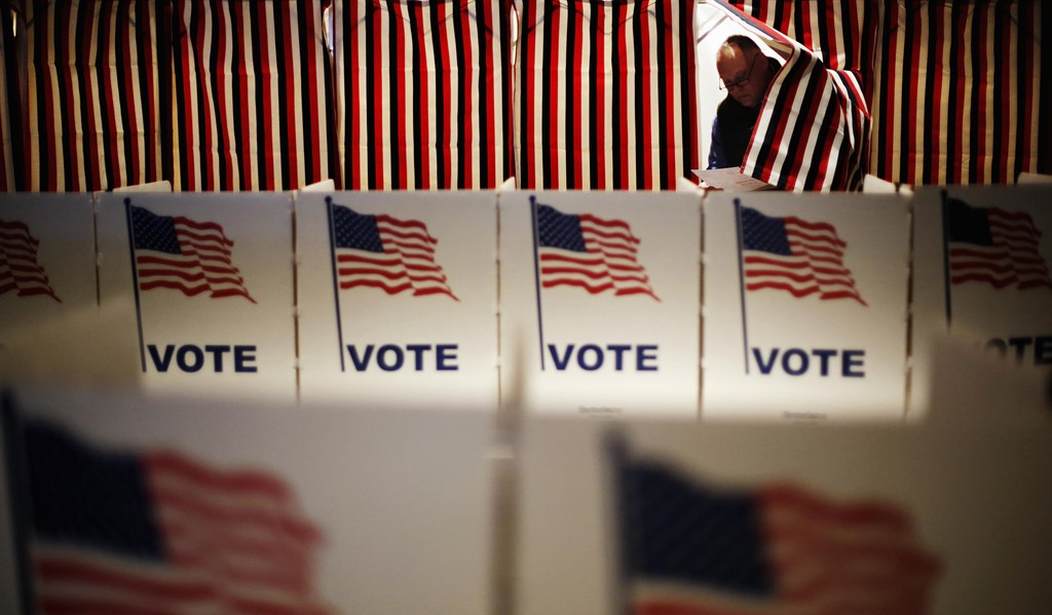Literally every time I write about voter fraud, or a judge up-ends a popular and democratically-enacted voter ID law, lefties come out of the woodwork to insist that such measures amount to racist "voter suppression," cynically masquerading as a policy solution to a problem that doesn't exist in reality. While some on the Right do overplay the threat and extent of fraud -- an impulse that can feed counter-productive, conspiratorial thinking -- the notion that it's a totally fake problem is just patently false. Liberals must be challenged aggressively every time they make this claim: Fraud absolutely exists, and they're apparently willing to tolerate it. Why? Setting aside the new examples for a moment, feel free to go back and check out these examples from Florida, North Carolina, California, and Ohio -- among many others. I needn't remind you that three of those are battleground states. Now, onto the latest instances, as flagged and summarized at the Daily Signal:
Kentucky:
Ruth Robinson, the former mayor of Martin, Kentucky, was sentenced to 90 months’ imprisonment on a variety of charges that included vote buying, identity theft, and fraud. With specific regard to the election charges, Robinson and co-conspirators James “Red” Robinson and James Steven Robinson threatened and intimidated residents of Martin in the run-up to the 2012 election, in which Robinson was seeking re-election. The cabal targeted residents living in public housing or in properties Robinson owned, threatening them with eviction if they did not sign absentee ballots the Robinsons had already filled out.
Texas:
Guadalupe Rivera and Graciela Sanchez illegally “assisted” absentee voters in Rivera’s 2013 re-election bid for city commissioner. Rivera won the election by 16 votes, but the result was invalidated after a judge determined that 30 absentee ballots had been submitted illegally. Rivera pleaded guilty to one count of providing illegal assistance to a voter and was sentenced to one year of probation and a $500 fine.
Iowa (this woman should move to Virginia):
Erin Venessa Leeper registered and voted in a 2015 school board election. As a convicted felon, however, she was ineligible to do so, and pleaded guilty to perjury last May. She was ordered to pay a $750 fine, plus $240 in court costs, and was sentenced to a suspended five-year prison term and two years of probation.
Recommended
Wisconsin:
Robert Monroe pleaded no contest to 13 counts of voter fraud, making him the worst duplicate voter in state history, according to Milwaukee County Assistant District Attorney Bruce Landgraf...Monroe will serve up to a year in jail, in addition to a suspended three-year prison sentence, five years’ probation, 300 hours of community service, and a $5,000 fine.
Click through for more details. The Heritage Foundation has compiled a database of hundreds of fraud cases nationwide -- and those only count the people who were caught. Requiring that voters prove that they are who they say they are is common sense. The concept enjoys lopsided support across a wide ideological spectrum. Voter ID laws aren't a silver bullet to stop all fraud, obviously, and elements of some legislation sometimes push too far in ways that deserve scrutiny. But in general, they represent a reasonable and sensible safeguard against illegal voting, and claims of discriminatory and disparate racial impact are overblown. The Left's effective pro-fraud stance is both wildly unpopular and wrong. This is a worthwhile and winnable political fight to wage -- and if the courts overreach on this front by flouting clear Supreme Court precedent, they should be criticized harshly. Pointing to robed lawyers overturning overwhelmingly-supported voter integrity laws is a fairly straightforward method of illustrating and attacking judicial activism. Public opinion has historically constrained the courts on a number of occasions, plus it's a potent election issue. I'll leave you with these flashbacks:

























Join the conversation as a VIP Member